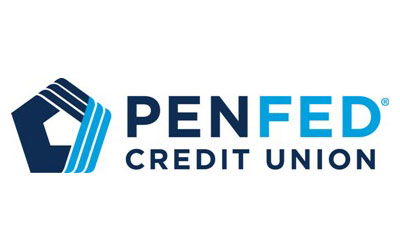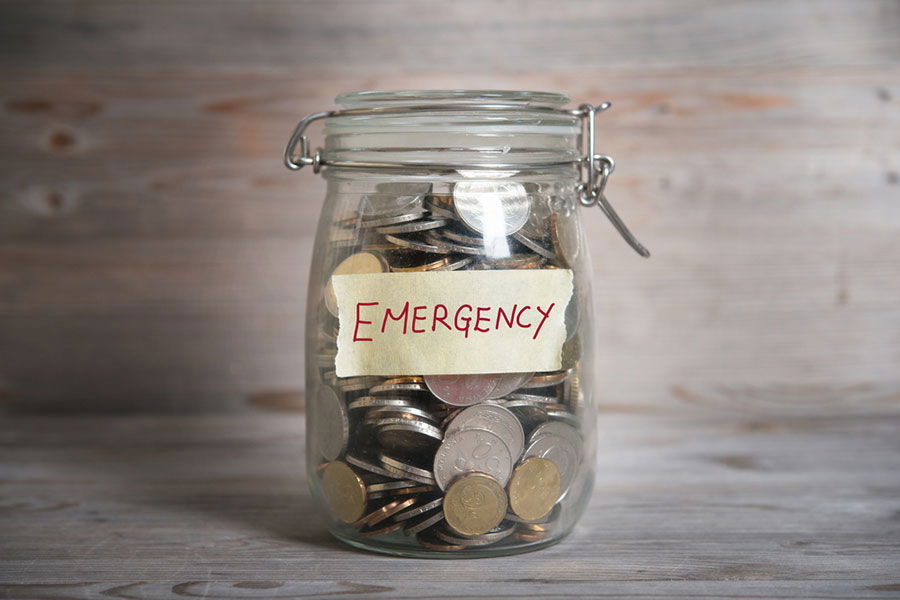The Department of Veterans Affairs has been helping veterans, and their families, qualify for home loans since 1944. VA loans are not issued by the VA but rather through banks and lenders. However, the VA does guarantee each qualified VA loan.
There are many benefits of VA loans compared to conventional mortgages. For example, applicants can apply for a VA mortgage with no down payment, and you don’t have to purchase private mortgage insurance (PMI).
You’ll likely get a lower interest rate than you would with a conventional mortgage. And you can qualify for a VA mortgage even if you only have fair credit.
Best VA Mortgage Lenders of March 2025
Even though you’ll get a discount with the VA loan program, it’s still important to shop around to find the best VA mortgage lender. In theory, you could apply for a VA loan with any mortgage lender, but some are better than others.
You should choose the lender that will give you the lowest VA loan rates and the most flexible repayment terms. Here are our top picks for the best VA mortgage lenders:
Veterans United Home Loans
Veterans United Home Loans is one of the largest VA mortgage lenders in the country, dedicated exclusively to serving veterans, active-duty military members, and their families.
Navy Federal Credit Union
Navy Federal Credit Union is the largest credit union serving military members, veterans, and their families.
Rocket Mortgage
Rocket Mortgage is a top online mortgage lender known for its fast, digital-first application process.
PenFed Credit Union
PenFed Credit Union is a strong choice for veterans, active-duty service members, and their families looking for competitive VA loan rates.
USAA
USAA is a trusted financial institution dedicated to serving military members, veterans, and their families.
Fairway Independent Mortgage
Fairway is a nationwide lender with over 700 branches, offering a full range of VA loan options for veterans, active-duty service members, and eligible surviving spouses.
New American Funding
New American Funding is a nationwide mortgage lender offering VA loans to veterans, active-duty service members, and surviving spouses.
Rate
Rate is a nationwide mortgage lender offering VA loans to veterans, active-duty service members, and eligible surviving spouses.
What are VA loans?
VA loans are mortgage products backed by the Department of Veterans Affairs. These loans are for service members, veterans, and their surviving spouses. VA loans allow them to buy homes with little or no money down and avoid private mortgage insurance. In addition, VA loans feature some of the most competitive interest rates on the market.
Although conventional mortgage lenders issue VA loans, they’re guaranteed by the federal government. Unlike standard loans, VA loans provide 100% financing when buying a home. Eligible borrowers can use the VA loan to purchase or build a house, renovate a house, or refinance their mortgage.
The VA doesn’t offer mortgage financing directly, but it sets the qualifying standards and dictates mortgage terms. Qualified borrowers can then secure a mortgage from private lenders such as mortgage companies, credit unions, and banks.
There are several types of VA loans. They’re classified as non-conforming loans due to their flexible credit requirements, lower interest rates, and down payment waivers. However, VA mortgages carry no prepayment penalties. The VA may also provide some assistance if you’re unable to keep up with your monthly payments in certain situations.

Who qualifies for a VA loan?
VA loans are available to veterans with an honorable discharge and active duty service members who meet the minimum requirements. Surviving spouses of veterans who died in active service are also eligible for VA loans.
To be eligible for VA mortgages, you must meet three criteria:
- Meet the VA’s basic service requirements
- Obtain a valid Certificate of Eligibility
- Meet a lender’s underwriting requirements
Department of Affairs’ Basic Service Requirements
You’re eligible for a VA loan if you meet one or more of these requirements:
- More than 90 days of continuous active duty during wartime
- More than six months of active service during peacetime
- Six years of service in the National Guard or Reserves
- You’re a surviving spouse of a veteran who died in the line of duty or from a service-related disability
Have a Valid Certificate of Eligibility
You need the above qualifications to secure a Certificate of Eligibility (COE). The certificate proves that you’re eligible for VA financing and provides details about your VA entitlement.
First-time borrowers have full entitlement, allowing them to take out a VA loan without a down payment. It also guarantees the lender that the VA will pay 25% of any loan amount over $144,000 if you default.
Meet a Lender’s Credit Score and Income Requirements
When issuing VA mortgage loans, most VA lenders set a minimum credit score requirement of 620 to 640. They will also look at your income level and debt-to-income ratio to gauge your ability to repay the loan. Your income level primarily determines the amount of money you can borrow.
Credit Score Requirements for VA Loans
Most VA loan lenders require a minimum credit score of at least 620 to be eligible for a VA loan, while others prefer to see it closer to 640.
Each of the three leading credit agencies, Equifax, Experian, and TransUnion, use the FICO index to calculate your credit score. However, subtle differences between the credit bureaus may lead to variations in the final credit score.
For example, if your credit scores from the three bureaus are 653, 640, and 633, the VA lender will discard the highest and the lowest and use the middle credit score.
For this reason, you should get a credit report from each of the three agencies when applying for a VA loan. Sometimes credit reports contain errors that lower your credit score. Rectifying these errors can lead to a significant boost that could push you over the cut-off point. This would help you secure a better interest rate.
Down Payment Guidelines for VA Home Loans
VA loans don’t require a down payment because they’re guaranteed by the government. If you don’t have the funds to put down on your loan, you don’t need to worry. That being said, it can help your overall financing if you do make a down payment. Doing so will reduce the total cost of your loan, as whatever you put down will not have to be paid back in interest.
You’ll also have to pay a down payment funding fee if your down payment is less than 20% of your VA loan. This fee varies depending on two factors: your down payment and whether you’ve had a VA loan in the past.
This fee can be paid upfront or included in the total value of your loan. Some borrowers, including Purple Heart recipients and surviving spouses, are exempt from the VA funding fee. So, make sure to check that with your VA mortgage lender.
There are also down payment assistance programs that you can apply for if you’d like to afford a minimum down payment and help reduce your total loan costs.
How to Apply for a VA Loan
Although applying for a VA loan may seem daunting at first, it becomes relatively straightforward once you understand the process. Here’s a simple six-step guide to the VA application process.
1. Determine Eligibility
National Guard and Reserves, current active duty, and veterans are eligible for VA loans. They must meet the required active duty dates, minimum active duty service, and wartime periods, as well as obtain a Certificate of Eligibility.
You can apply directly through eBenefits at VA or request it through the mail by filling out form 26-18880 and attaching the supporting service documents. Your lender may also be able to apply on your behalf.
2. Choose a VA-Approved Lender
Not all lenders make a great fit when looking for VA mortgages. VA loans can only be originated by lenders on the Department of Veterans Affairs’ shortlist.
Secondly, some mortgage lenders specialize in conventional loans, while others are dedicated almost exclusively to the VA home loan program. A VA specialty lender is more knowledgeable about the loan process, delivering a better experience most likely.
3. Get a Mortgage Pre-approval
Mortgage pre-qualification is necessary when buying a home with a VA loan. It lays the groundwork for a smooth application process while eliminating potential surprises down the road. During pre-qualification, you’ll speak with your potential lender about your credit history, income, marital status, employment, and other crucial factors.
The pre-qualification process may offer insights into what you can do to increase your chances of approval. Pre-qualification letters give you an idea of how much you may be able to borrow, which can help you with your house-hunting efforts.
Even though the letter doesn’t guarantee loan approval, it serves as a guideline to let you know where you stand. It also proves that you are serious and have already started the process with a lender when making an offer on a home. Of course, the lender will have to verify all the information you provided before processing the loan.
4. Find Your Ideal House
House hunting is the most exciting step of your VA loan application since it allows you to find your dream home. A pre-qualification letter lets you shop strictly within your price range to save time and avoid disappointment later. Any real estate professional can help you with this step. However, it’s best to work with someone familiar with the VA mortgage loan process.
The VA allows the seller to absorb specific fees and costs. A seasoned VA loan agent can help you negotiate these fees and potentially save some money. Once you agree, you can sign a purchase agreement and proceed with the VA loan application.
5. VA Appraisal
After submitting your signed purchase contract to your lender, they’ll request the VA to appraise the home. Again, you need a VA-certified appraiser, since they’re familiar with the standards required for VA financing. A VA appraiser will ensure the house is valued correctly and corresponds to its current market value.
The appraiser will inspect the home to ensure it passes the VA minimum property requirements (VA MPR). However, a VA appraisal doesn’t negate a proper home inspection. Unlike an appraisal, a home inspection checks for defects, code violations, and property conditions.
The VA grants its appraisers ten days to complete the appraisal process, barring any extenuating circumstances. Then, if the property is up to par, and you meet all the loan requirements, you can proceed with the loan approval process.
6. Close the Sale
After the underwriter approves your loan, you can close the loan and move into your new home. The seller legally transfers the property over to you during the closing process. You’ll need to sign documents confirming that you understand and agree with the loan’s terms and conditions.
You’ll also need to pay the closing costs, if required, and provide proof of homeowner’s insurance. You can take possession of the house immediately after signing all the closing documents.
Pros and Cons of VA Loans
VA loans offer several benefits in comparison to traditional private loans, but there are also potential downsides to consider. Finding the best VA home loan is also easier when you’ve got a full picture of the pros and cons.
Pros:
- Lower interest rates compared to a traditional mortgage.
- No minimum down payment.
- No mortgage insurance required.
- Lower minimum credit score requirements.
- Lower closing costs compared to a traditional mortgage.
Cons:
- VA funding fee (higher for multiple VA borrowers).
- Requires home appraisal and inspection.
- It can’t be used for investment or vacation properties.
- Some sellers may be resistant to VA funding.
VA Loan Rates
VA loans typically have much lower interest rates in comparison to traditional mortgage loans. The reason mortgage lenders can offer these competitive interest rates for VA loans is because they’re backed by the government. This means VA lenders don’t have to take on as much risk as they would with regular borrowers.
Keep in mind that interest rates are still set by private mortgage lenders and are subject to market fluctuations. VA loan rates will also vary depending on the loan type and term, your credit score, debt-to-income ratio and your down payment, if you do put money down. This all means that it’s important for you to shop around before choosing a mortgage lender.
Finding the best VA loan lenders available to you, and therefore the best mortgage rates, might take some time and research. While some online lenders will publish their rates, many VA mortgage lenders don’t. Let’s look at some tips below to help you source the best VA loan for you.
Tips for Finding the Best VA Loans
It’s true that VA loans can provide numerous benefits in comparison to conventional loans. However, finding the best VA mortgage lender for your financial situation might take some time and consideration. Before you proceed with any mortgage lender, review all of your loan options so you can be certain you’re making the best choice.
Not all lenders offer VA loans, so the first step is to seek those who offer VA financing. Then it’s a matter of finding out about loan requirements, and getting a clear and up-to-date picture of your financial situation.
You’ll want to understand exactly what you can afford, and how your credit score looks, before you start sounding out VA loan lenders. You’ll also need to decide how much of your monthly budget you can afford to dedicate towards your loan.
To get a basic understanding of the VA loans available, request quotes from several VA mortgage lenders. You can request a quote online. It requires information about the loan amount and repayment terms, as well as your credit score.
VA loan rate quotes usually require a soft credit check, so it won’t affect your credit score. You can also use a quote from one lender to potentially negotiate a lower fee with another lender.
Alternatives to VA Loans
If you don’t qualify for a VA loan, or if you can’t find a VA loan lender with the right financing options, there are alternatives to consider. Even if you do qualify, you might want to exhaust all other possibilities by looking into alternative loan options.
- Conventional loans: Conventional mortgage loans don’t come with an additional funding fee like a VA loan does, and you can use them on investment properties and second homes, or holiday properties. Conventional loans also have loan limits identical to those for VA loans, but they are less accommodating than VA loans when it comes to your credit score.
- FHA loans: Loans from the Federal Housing Agency are government-backed, like VA loans. They also don’t come with early payment penalties. FHA loans are based on occupancy, however, meaning they can’t be used to mortgage secondary homes and investment properties.
- USDA loans: USDA loans are similar to VA loans in that they don’t require a down payment. However, these loans are only available to those living in designated rural areas. There are also specific qualifying restrictions on USDA loans, including occupancy and low income requirements. Homes which are financed by USDA loans also must be single-family properties.
How do I get started?
If you’re interested in applying for a VA loan, you’ll need to find a VA mortgage lender and get prequalified first. Once your VA lender has verified your income and financial information, you’ll receive your pre-approval letter.
Now that you know what you can afford, you can begin looking for houses. Once you find the home that’s right for you, you can put in an offer and start the negotiation process. It’s a good idea to partner with a real estate agent who knows the ins and outs of VA loans.
When you’re under contract, the VA will appraise your property. If everything looks good, you are in the clear to close on your new home.












